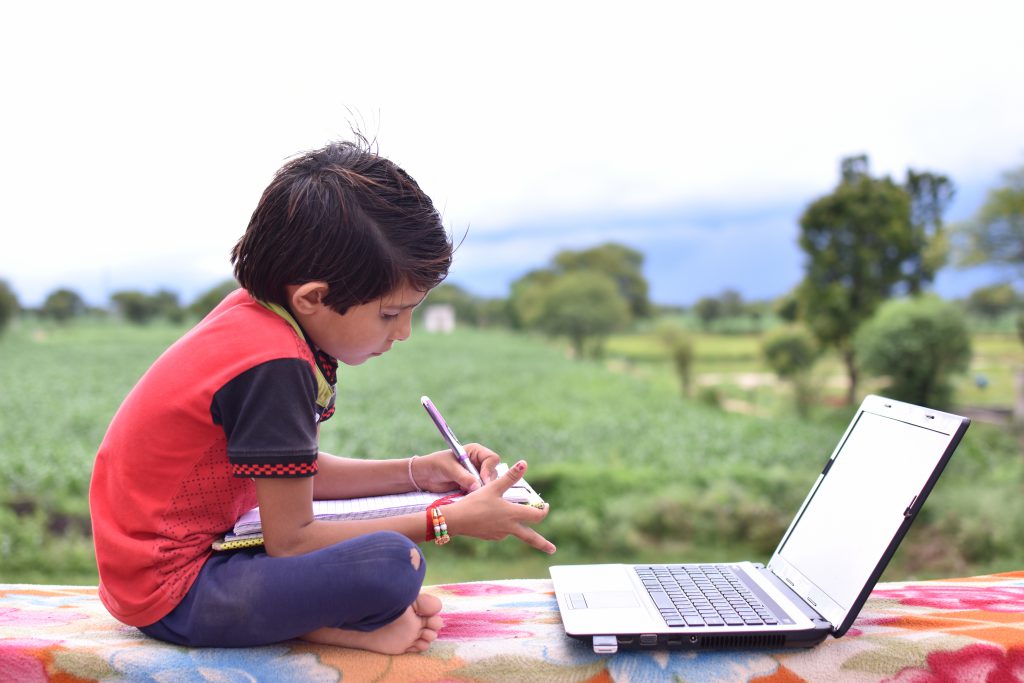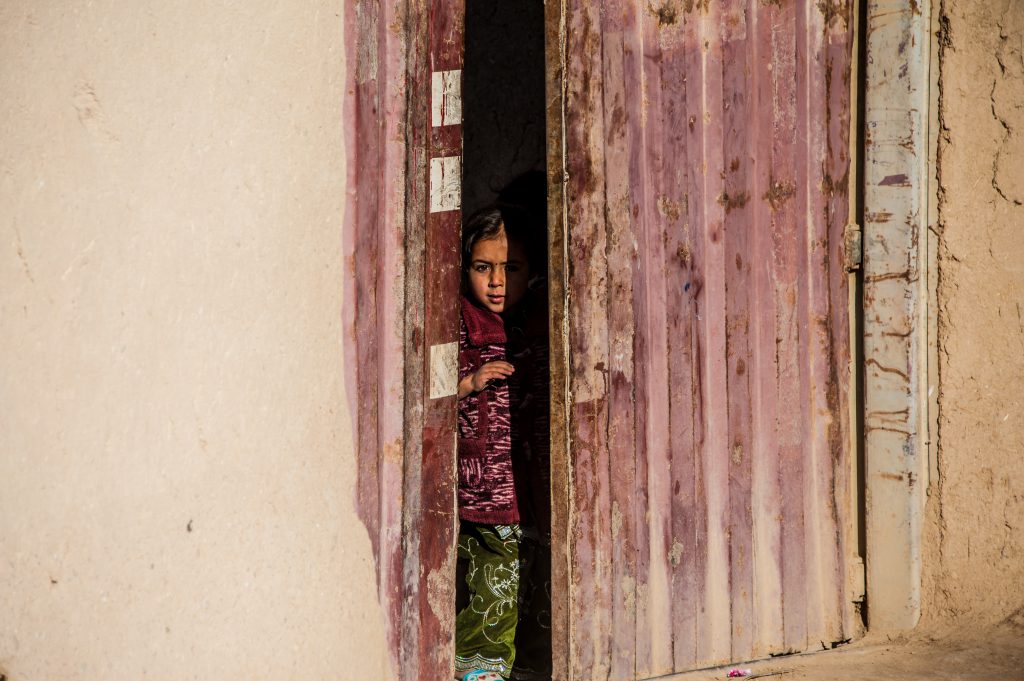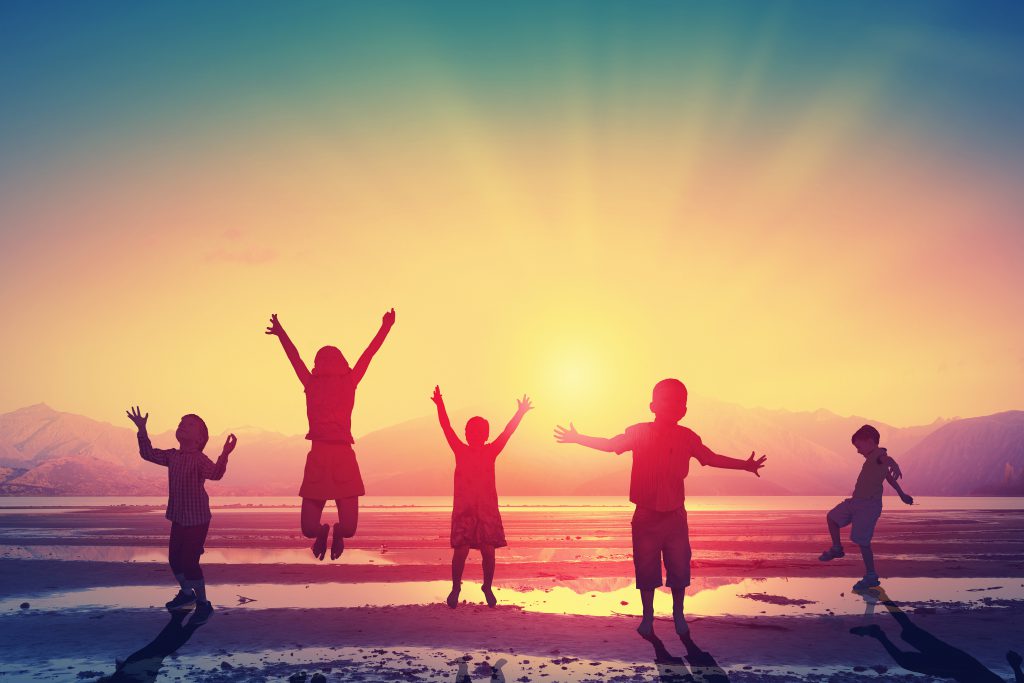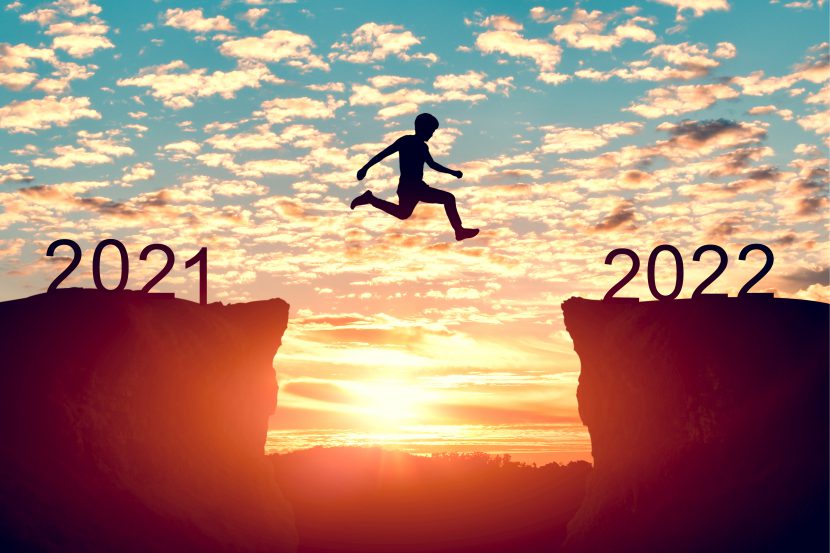The year we are slowly leaving behind has been another challenging year for children’s rights worldwide. Children around the world have been faced with many barriers hindering their opportunities to a fulfilled life, such as migration, exploitation, poverty, violence, discrimination, etc. The COVID-19 pandemic which struck a year before has continued to take its toll on children’s physical and mental health, as well as their physical and online access to education.
Among different countries in the world experiencing a situation of political turmoil, one of the most serious threats to children’s rights, and in particular the rights of girls, came from Afghanistan when the Taliban conquered Kabul without significant effort. While their voices became silent, other young voices became louder, especially those of young climate activists gathered at the UN’s Climate Change Conference in Glasgow urging immediate climate action. Humanium has also undertaken to raise its voice for the well-being of children through working groups, online meetings and joint statements, and will continue to do so in the year to come.
The continuation of pandemic’s influence on children’s rights
The sudden outbreak of Coronavirus caused unexpected changes in our daily lives on a global scale in 2020. Apart from the fear that the new virus represented in terms of our health, there was a growing concern regarding our new way of life that required many adjustments, to which children were especially vulnerable.
Education, one of the most important aspects in a child’s life, has been significantly impacted by new rules and situations set out in order to contain the spread of the virus. Even one years after COVID-19 struck the world and mainly due to school shutdowns in 31 countries and reduced or part-time academic schedules in another 48 countries, over 800 million students (more than half the world’s student population), continued to face significant obstacles in implementing their education (UNESCO, 2021).

Due to school closures as an unfavourable consequence of the pandemic, it was estimated that an additional 72 million primary-school-aged children might be pushed into learning poverty, which means that they would be incapable of reading and understanding a simple text by the age of ten (World Bank, 2020). Since physical classes in schools were no longer possible, schools across the globe moved to an online education system where children attended classes online from their home. The sad reality was that for at least one-third of the world’s school-going children (463 million), remote learning was an impossible way to continue with their education (UNICEF, 2020).
The pandemic has also resulted in huge degradation of one’s mental health. Children were suddenly faced with an inexplicable sense of fear, loss, and suffering. For many children, online education has also implied an unseen rise in screen time, necessary for children to be able to learn and stay connected to the outside world (UNICEF, 2020). Although childhood as a period in life should be deprived of any fears or worries that usually come with adulthood, the pandemic deprived many children of a life they were once used to, and has left them coping with a new, scarier reality.
Violence against children within the context of the COVID-19
To commemorate the International Day for the Elimination of Sexual Violence in Conflict in June of 2021, Special Representative of the Secretary-General for Children and Armed Conflict Virginia Gamba highlighted the issue of conflict-related sexual violence against children within the context of the COVID-19 pandemic and the worrisome situation of children born of rape. As shown by the statistics, following the Coronavirus outbreak, there was a dramatic increase in verified cases of sexual violence against children in armed conflict.
Indeed the COVID-19 pandemic has had a series of consequences on children in armed conflicts with an increase in actual violations, reduced accountability and punishment, weakened monitoring and reporting as well as the halting of survivor service provision. The Secretary General’s 2020 Report stated that these violations do not affect boys and girls in the same way: while boys are more likely to be subject to recruitment and use, girls remain more vulnerable to rape and other forms of sexual violence. In 2020, these figures rose by 70%, with 98% of victims being girls (UNSC, 2021).
What’s more, the COVID-19 pandemic, together with the refugee and economic crisis in Lebanon has led to a staggering increase in child marriages amongst Syrian refugees in the country, where the rate of child marriage has increased four times since the Syrian conflict began (Monla-Hassan & Yacoubian, 2020). It is quite clear that child marriage has devastating impacts on children, depriving them not only of their childhood but also jeopardising their lives, health and basic rights, thus limiting their future progress and development, and that this widespread culture practice must end.
The degradation of children’s rights in Hungary and Afghanistan
In June 2021, the Hungarian government passed a new anti-LGBTQI+ law that was quickly heavily criticized by the international community. Although the Hungarian government insisted that the law was passed to protect the children and their rights, it was clear that the law, allegedly drafted to further criminalise paedophilia, could have severe consequences on the rights of LGBTQI+ children.
The law might potentially ban all media such as TV shows, movies and music which include LGBTQI+ related content from being shown to minors, as well as school sex educators from addressing homosexuality and sexual orientations (Zoltán, 2021). Although the Hungarian government tried to present the law as a positive solution, it is clear that the only solution, instead of passing such laws, would be to raise children’s awareness on important aspects of life, such as sexual education and gender identity. This way, we could ensure that all children lived in a society full of understanding, peace and tolerance.
A few months later, in August, the world was shocked by the most recent events in Afghanistan. With the withdrawal of NATO troops from the country, the Taliban launched an offensive on multiple fronts to reconquer territory across the country. The Afghan army was overrun, continually losing ground and the Taliban conquered Kabul without significant effort. The president of Afghanistan, Ashraf Ghani, formerly given military support from the United States, left the country to avoid war (Barr, 2021).

The Taliban’s takeover of Kabul has posed a threat to children’s rights and in particular the rights of girls in Afghanistan. The situation is equally tragic for women who have acquired rights over time and who are in positions of responsibility as their future is now uncertain and there are many concerns for their safety. The Taliban continue to state that women will maintain equal rights to those of men, in keeping with Islamic law, and as such will be able to continue to study (Seir et al., 2021).
Despite this, many experts warn against seeing the Taliban’s promises as believable. The Taliban’s return to power in Afghanistan is a worrying sign for the rights of children (especially girls) and women, as well as for their future. The sad fact remains that every day thousands of people attempt to flee the country in search of a better life.
Fighting for children’s environmental rights worldwide
Nine girls from the Ecuadorian Amazon and their respective communities of origin won their appeal before the Sucumbíos Provincial Court of Justice, in which they had asked the State of Ecuador to assume its environmental responsibilities, ban the practice of gas flaring and bring reparations to thousands of affected local and indigenous communities. This has been certainly a landmark ruling for environmental rights in Ecuador, requiring oil companies’ accountability for the environmental and health impacts of their activities (Earth.org, 2021).
In October 2021, world leaders gathered in Glasgow for the United Nations Climate Conference (COP26). The COP26 summit brought parties together to accelerate action towards the goals of the Paris Agreement and the UN Framework Convention on Climate Change. While discussion were being held on the main stage, thousands of climate activists gathered at the climate summit, including Greta Thunberg, Vanessa Nakate (Uganda), and Mitzi Jonelle Tan (Philippines), to addressed the crowds in Glasgow and urge immediate, real climate action (Kippenberg, 2021).
The young protesters clearly specified that climate action was more urgent than ever and could not be delayed any longer since many children’s lives and those of future generations, were at stake. Already, as they pointed out “children around the globe face death, illness, hunger, displacement, and other serious impacts from rising temperatures, drought, storms, forest fires, and floods due to governments’ inadequate climate policies” (Kippenberg, 2021). It is therefore essential that governments, those same governments composed solely of adults, finally start to listen to these young people.
Humanium’s tireless advocating for children’s rights
At the beginning of the year, Humanium facilitated the writing of an Open Letter which was sent by 20 Members of the European Parliament (MEPs) to the Brazilian government. In the letter, which demands an end to deforestation of the Amazon rainforest, MEPs condemned Brazil’s handling of COVID-19 pandemic as “failed” and urged immediate action for the preservation of the Amazon and the respect of child and indigenous people’s rights. The letter represented a global public petition from Humanium signed by over 5000 people from 158 countries and called upon Brazil to sign the Intergovernmental Declaration on Children, Youth and Climate Action.
As part of its advocacy activities, Humanium took part in working groups, online meetings and delivering joint statements that would improve children’s rights worldwide. On March 1, 2021, the Human Rights Council’s (HRC) annual full-day meeting on the rights of the child (ADRC) took place, focusing on the theme ”The rights of the child and the Sustainable Development Goals”. Humanium, together with other NGOs, delivered a joint statement emphasizing the need to protect, invest in and empower children, as the most guaranteed way to accelerate global development.
Humanium is also proud to have signed the Joint-Statement on the realization of children’s right to a healthy environment alongside over 80 organizations across the world. The Joint-Statement, which was delivered on 3 March 2021 by the Children’s Environmental Rights Initiative (CERI), and Child Rights Connect Working Group on Child Rights and the Environment, drew attention to the particular vulnerability of children’s health and well-being to environmental harm. Factors such as climate crisis, toxic water pollution, global biodiversity loss and toxic environments in which children currently live pose severe threats to the rights of children set in the UN Convention on the Rights of the Child.
During the same month, the UN Committee on the Rights of the Child officially launched their new General Comment No. 25 on Children’s rights in relation to the digital environment. The adoption of this General Comment signals the first time that children’s digital experiences are mentioned within the UN Convention on the Rights of the Child (CRC) and marks a historic moment for all those working to protect children on the internet. Humanium submitted a proposal in relation to the digital environment because we share the UN’s vision of how children’s rights should be implemented in the digital world (OHCHR, 2021).
Humanium has also been working with other international NGOs as part of the Working Group on Environment to see the right to a safe, clean, healthy and sustainable environment recognized. Later in the year, Humanium attended a general meeting of the Working Group on Environment with the representatives of several NGOs: Child Rights International Network (CRIN), Terre des Hommes, Child Rights Connect, and Franciscans International. The general meeting of the Working Group on Environment was an important occasion for Humanium to discuss with the other members of the working group the ongoing challenges, recent developments and future activities in the field of children’s environmental rights.
New year – new possibilities
Although there are still many challenges to overcome in today’s world, at Humanium, we are committed to keep raising awareness and safeguarding children’s rights globally, whether it is their right to food, education, protection, health, clean environment or freedom. Humanium will also continue to offer legal help to child rights abuse victims through its multilingual Helpline. Investing all our efforts into providing the victims with unyielding hope, but also effective solutions is part of our methodology which we will keep implementing next year as well.

We have always advocated for a world where children’s rights are respected and protected, and we will keep on pursuing that goal in 2022. If you would like to help us in achieving that and support Humanium in its work, please consider sponsoring a child, making a donation or becoming a volunteer in the year to come.
On the behalf of the entire Humanium Team, we wish you a happy, safe and peaceful New Year!
Written by Ivana Kaćunko
Bibliography:
World Bank. (December 2, 2020). Pandemic Threatens to Push 72 Million More Children into Learning Poverty—World Bank outlines a New Vision to ensure that every child learns, everywhere. Retrieved from the World Bank, accessed on 28 November 2021.
Zoltán, K. (June 23, 2021). Portrayal and promotion – Hungary’s latest anti-LGBT law, explained. Retrieved from Telex, accessed on 28 November 2021.


